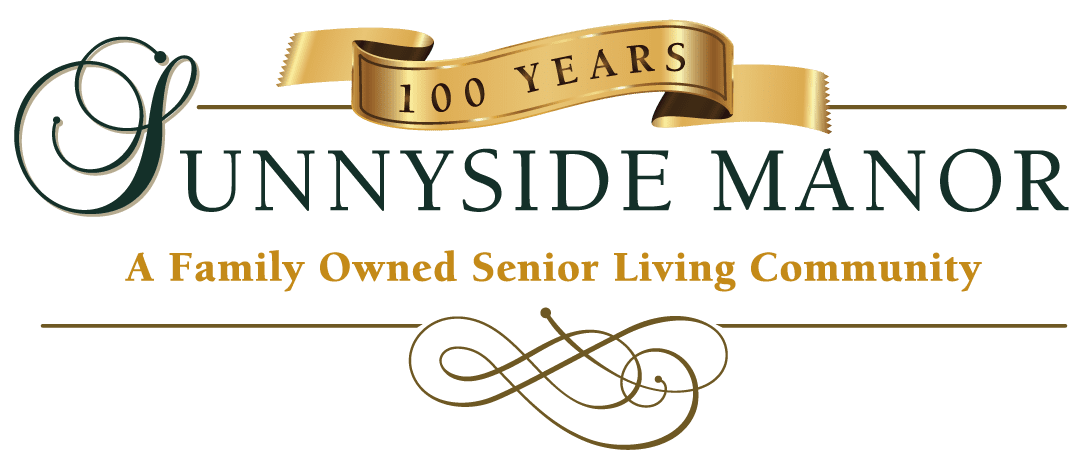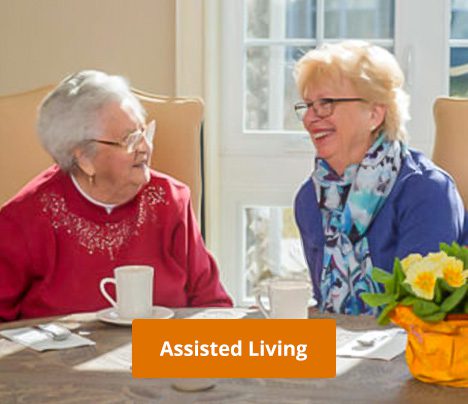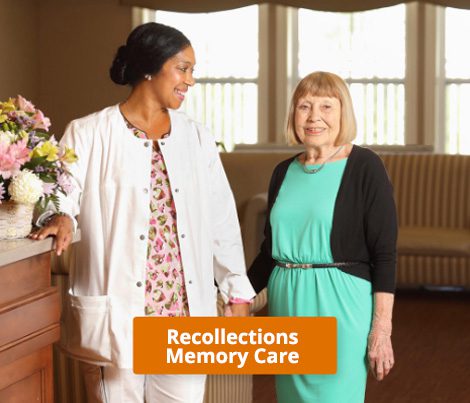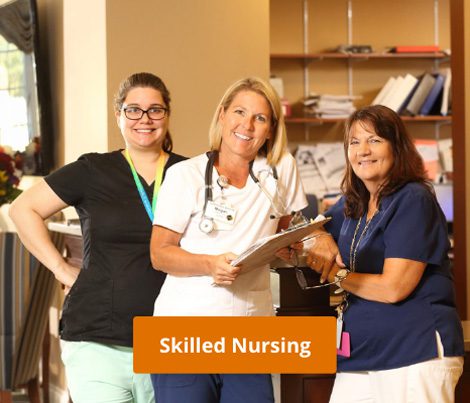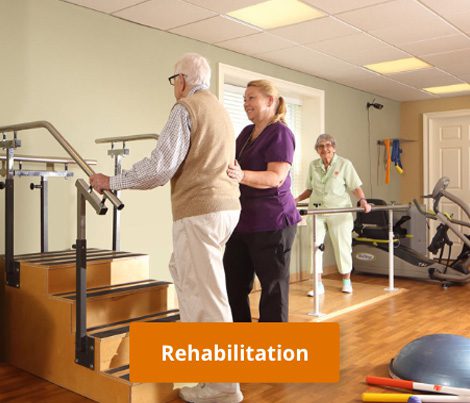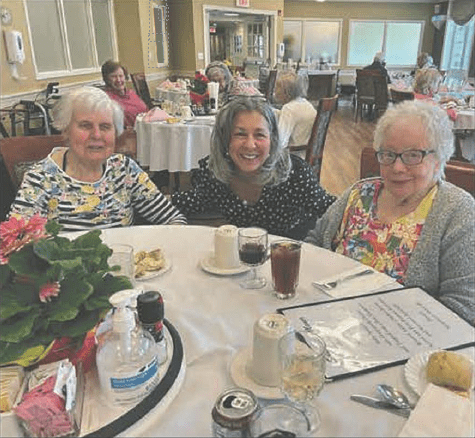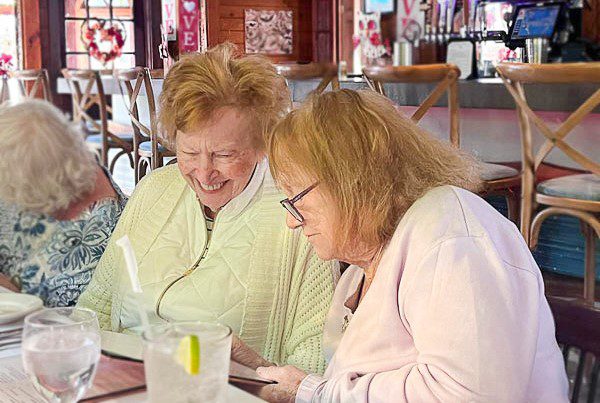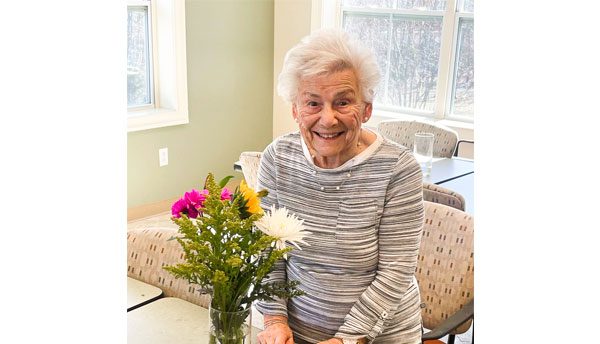Memory Care or Assisted Living: Which Is the Right Choice?

 Have you noticed a senior parent or loved one becoming forgetful? Many families turn to memory care when they notice that a loved one is experiencing memory challenges. However, with so many options available today, it can be hard to know which option will be best.
Have you noticed a senior parent or loved one becoming forgetful? Many families turn to memory care when they notice that a loved one is experiencing memory challenges. However, with so many options available today, it can be hard to know which option will be best.
Mild to moderate memory loss doesn’t necessarily mean that a senior needs memory care. Some forgetfulness is a normal part of aging, and many seniors with mild memory loss – for example, forgetting to take medications or lock their door – thrive in the supportive environment of assisted living.
So, how do you know which is the right choice for your loved one?
Only a physician or qualified professional can determine whether your loved one requires memory care. But, there are some guidelines that can be helpful in deciding whether the right choice is memory care or assisted living.
First, it’s important to understand the difference between memory care and assisted living.
What’s the Difference Between Memory Care and Assisted Living?
In both environments, the goal is to maximize independence for seniors. However, the way we do that is different.
Assisted living provides assistance with the tasks of daily living, such as bathing dressing, and managing medications, along with meals and social programs. Assisted living is an ideal choice for seniors who find maintaining a household burdensome due to physical or mild cognitive changes.
Memory care provides all of the services of assisted living, with a specific focus on serving those with moderate to severe memory loss. From the architecture to the décor to the entertainment and programs, memory care offers a supportive and soothing environment for seniors whose overall wellbeing is significantly impacted by memory loss.
Here are some examples of the key differences between assisted living and memory care.
Assisted Living
- Environment:
Residential, similar to luxury hotel or apartment community. Special accessibility features make it easier to navigate for people with assistive devices such as walkers or wheelchairs. - Programs:
Social and educational programs suit a wide variety of interests including music, arts and crafts, current events, games, and fitness. Programming may be modified to accommodate common concerns such as arthritis or hearing/vision impairment. The purpose of the programming is independence, social interaction, and staying sharp and engaged. - Dining:
Dining at Sunnyside Manor Independence ‘Plus’ Assisted Living is restaurant style. Residents dine together in the dining room for three meals per day, or may dine in their apartments if they wish. Snacks are always available, and residents are welcome to keep favorite treats in their apartments.
Memory Care
- Environment:
Residential, with décor chosen to soothe and calm. The design, from color to layout, is easier for those with memory loss to navigate. Memory care neighborhoods also have additional security to protect those who may wander from the community. - Programs:
Specialized programming is accessible and therapeutic for those with memory loss. The focus of this programming is socialization, sensory stimulation, and maintaining the highest possible level of cognitive health. Programming may include music, arts, games, and movement. - Dining:
Meals in our Recollections Memory Care Neighborhood are in the country kitchen, and plated at the table. This style of dining is more soothing and helps to stimulate appetite, which often flags in those with significant memory impairment. Dining choices are nutritious and stimulating, with foods that are easier for those with memory loss to manage.
Guidelines for Determining Whether Memory Care is the Right Choice
Sometimes it can be difficult to tell whether a change in a loved one’s behavior is due to memory loss or due to a physical condition. For example, changes in personal hygiene may result from forgetting to complete those tasks, or from being unable or afraid to complete them due to a physical limitation.
Review our checklist, “How Do You Know When Your Senior Loved One Is No Longer Safe At Home?” for warning signs that your loved one may need additional support. If your loved one is showing any of these warning signs, plus any of the following behaviors, memory care may be the best option.
- Impaired judgment – Your loved one is no longer to make decisions about their own safety. For example, they may wander outside at night or not notice spoiled food.
- Social behaviors – Unexpected use of inappropriate language, statements, or actions has made socializing with others a challenge.
- Erratic or unpredictable behavior – Outings and visits are difficult because your loved one’s behavior has become erratic. They may become too emotional to leave home, or deeply agitated in an unfamiliar or crowded environment.
- Sundowning – There are noticeable behavioral changes later in the day. This is called “sundowning.” Memory loss becomes more pronounced and your loved one becomes especially agitated or emotional in the evening.
- Disrupted or disordered sleep – While it is normal for sleep cycles to change as we age, a pattern of disrupted sleep can indicate a more serious cognitive issue. Consistently sleeping for much of the day and staying awake overnight is a warning sign.
Getting the Help You Need
Determining whether a loved one needs memory care can be challenging. The changes are often gradual, and the process can be emotional for families. Only a physician or a qualified professional can determine with certainty whether the right choice is assisted living or memory care.
We are here to help. Begin with our “Getting Started” guide, or call us at 888-696-2052 to speak with a senior living expert.
If you are concerned about changes in your loved one’s physical or mental health, be sure to speak with their doctor. They may also recommend an assessment by a social worker or geriatric care manager.
Theall new Sunnyside Manor, located in Wall, NJ, is the area’s premier senior living community. It features three distinctive neighborhoods: Independence ‘Plus’ Assisted Living, Recollections Memory Care, and Skilled Nursing.
